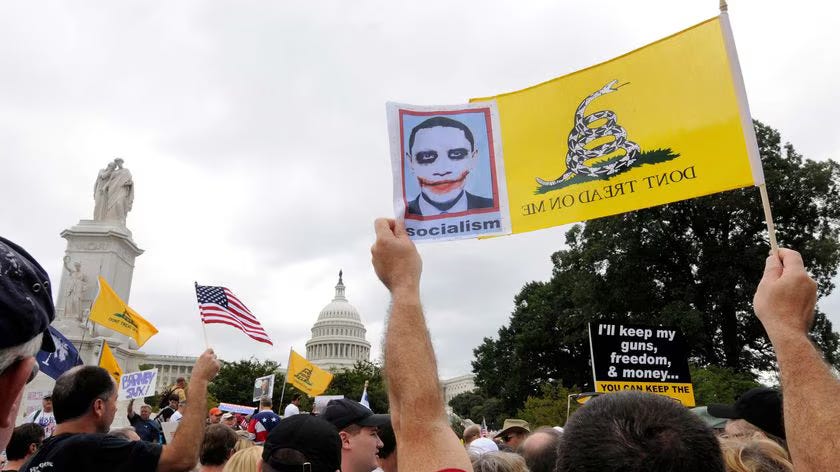Trump didn't start the fire
A look at immigration views shows the Republican Party transformed before he got there
I want to step back a little bit from our democratic crisis of the week/day/hour and look at how the Republican Party has transformed in recent years. In my forthcoming book, I’m looking to understand just how the party has changed and how much of that is the direct result of Donald Trump. My impression is that a great deal of transformation occurred before he got there, and a lot of it was around the 2012 election.
One of the central issues in this transformation is immigration. We know from a variety of research that views on immigration are vital to the growth of conservative populist movements like MAGA — conservative populism only has soil to grow when the population is already incensed about immigration. The Reagan-Bush faction that dominated the Republican Party for decades was far more open to immigration from Latin America, and George W. Bush worked for immigration reform during his presidency and was rewarded with relatively strong support from Latino voters. By contrast, the conservative populist faction that has been rising in the Republican Party since at least the 1990s is deeply opposed to immigration, especially from the U.S.’s southern border.
It’s difficult to narrow down exactly what changed within Republican politics to make its voters turn away from the Reagan-Bush faction and embrace the nativist/populist one, precisely because there were so many changes. The George W. Bush administration’s lengthy and unpopular war with Iraq, stretching out across (and well beyond) his two terms in office, did much to discredit that wing of the party.
But Barack Obama’s presidency is central to this story. As a Black presidential candidate with the middle name Hussein in the middle of a war with multiple Muslim-majority countries, Obama proved particularly vulnerable to an “othering” campaign by conservative populists. While this didn’t derail his 2008 presidential bid, it did fuel a growing fear and resentment of him among this set of Republicans. Even before his 2008 election, conspiracy theorists were floating stories claiming, falsely, that Obama was a Muslim, that he was the Antichrist, that he was not born in the United States and thus ineligible for the presidency, etc.
These conspiratorial beliefs only grew once Obama was elected. A Pew survey in 2010 found that, among self-identified Republicans, 31% thought Obama was a Muslim (up from 17% a year earlier) while just 27% thought he was a Christian (down from 47% a year earlier). His political successes seemed to convince many Republicans that their status was under threat, and that Obama was illegitimately granting privileges to “undeserving” people or non-citizens.
But the conspiracy theories about Obama metastasized in 2012 as immigration again came to the forefront of national politics. When the DREAM Act, (an effort to provide a path to citizenship for undocumented immigrants brought to the United States as children) failed in Congress, Obama announced that he would pursue some of its goals using executive orders.
In June of 2012, Obama announced that his administration would no longer deport people described as DREAMers, and later that summer, the U.S. Citizenship and Immigration Services started accepting applications under Obama’s new Deferred Action for Childhood Arrivals (DACA) program. Republican leaders broadly called Obama’s actions unconstitutional and a vast and illegitimate expansion of presidential authority. Conservative activist broadly portrayed it in conspiratorial terms, saying Obama was inviting people into the country, functionally granting amnesty, and offering them benefits to which they were not entitled.
At roughly the same time came an important U.S. Supreme Court ruling on Arizona’s Senate Bill 1070 law. The Arizona law, passed two years earlier, had made it a state crime for an immigrant to be in Arizona without any certificate of alien registration documents. It additionally required police in the state to try to determine an individual’s immigration status during any stop or arrest when there was “reasonable suspicion” that the individual was an undocumented immigrant. This was immediately challenged by the U.S. Department of Justice, and the Supreme Court ruled on it in June of 2012, striking down three provisions but validating the rule requiring document checks during law enforcement stops. Both this and the DACA efforts became rich fodder for conservative talk radio and social media in 2012, elevating the salience of immigration in the national conversation.
So there are two important questions here: 1) Did Republicans’ views on immigration change?, and 2) If they did, did that change come before or during Trump’s political career?
To examine this, I’ve dug into the American National Election Studies a bit.
Keep reading with a 7-day free trial
Subscribe to Tusk to keep reading this post and get 7 days of free access to the full post archives.





